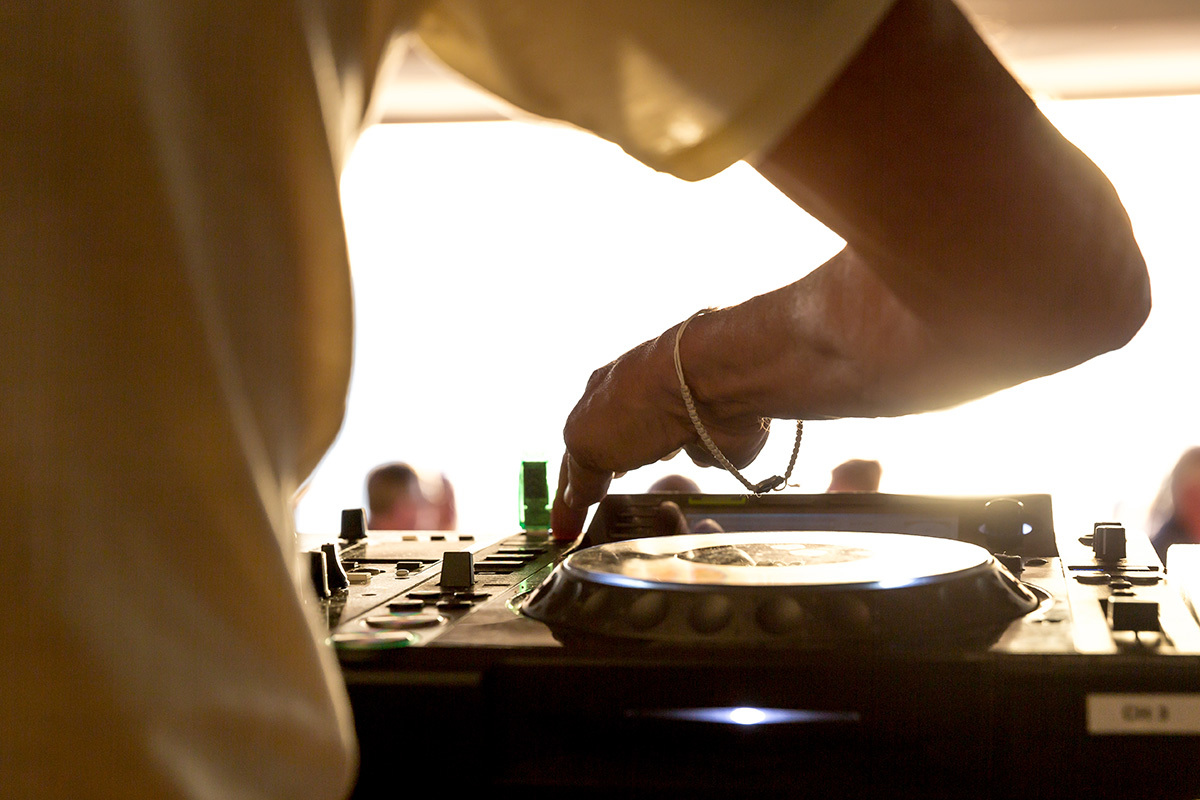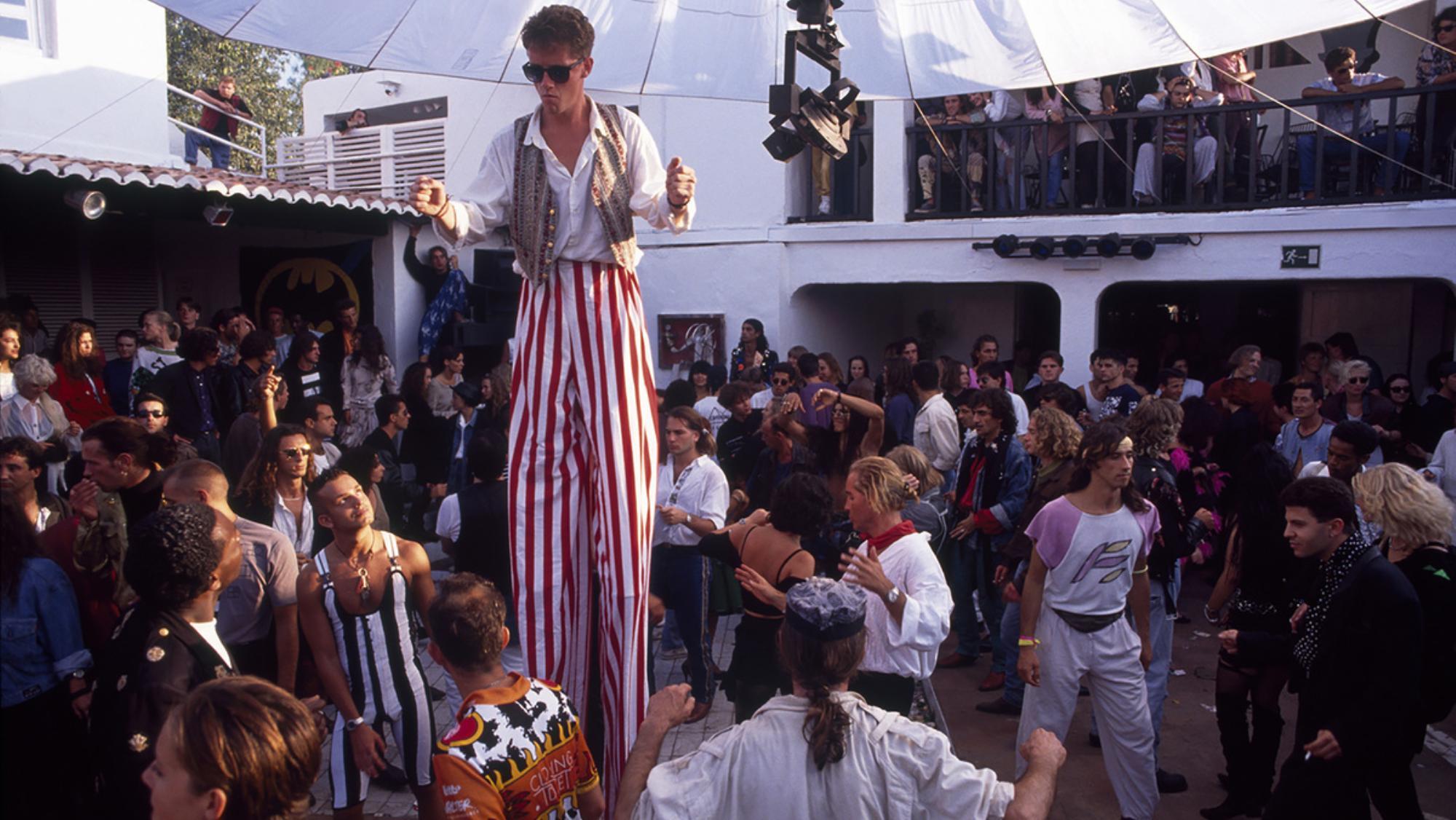Thirty years ago, Ibiza was a priest on a donkey. It’s a saying you’ll hear a lot on the island but, then again, this small rock in the Mediterranean was built on myths: from the Carthaginians who named the place after their god of dance, Bez; to the four lads who went on holiday there in 1987, took an E, and ended up altering the course of UK clubbing forever.
When Johnny Walker, Nicky Holloway, Paul Oakenfold and Danny Rampling returned to London from Ibiza that fateful August, they brought with them the freewheeling sound they’d heard performed by a DJ named Alfredo in the island’s Amnesia nightclub. Dubbed “Balearic beat”, it saw eight, nine hours sets that took in post-punk, disco, Chicago House and tango. Elkin & Nelson next to Thrashing Doves and Donna Summer. It was chilled out and loved up. And it was like nothing else on the planet.
Fast forward 30 years and Ibiza is a very different place. Touch down at the airport any time between May and October and the first thing you’ll notice is billboard after billboard advertising eye-wateringly expensive tickets to eye-wateringly large superclubs. Over 7.1 million people visited the White Island last year (a 14.6% increase on the previous year’s figures), bringing with them an era of cultural hegemony far from the hippie bohemianism of the island’s history. And yet, just up the bay from the Keith & Val’s all-night British eateries of San Antonio, a pair of DJs are spearheading a Balearic revival – and they’re embarking on a little myth making of their own.
Because the first very pure ecstasy was coming in, because it was open air, because there was no VIP culture, you had aristocrats dancing next to builders and next to office workers, maybe that fuelled the flame of the myth.
Until a few seasons ago, Hostal La Torre was a lot like many of the other white walled hotels that poke out into the blue sea of Ibiza’s west coast. Basic, but blessed with arguably the best sunset views on the island, it had garnered a reputation as a sort of Ibicenco Fawlty Towers. That is, until, Grupo Mambo (the family run business behind chillout mecca Café Mambo) acquired the property and, with the help of British DJs Mark Barrott and Pete Gooding, transformed it into the heart of a burgeoning Balearic renaissance.
On any given evening at La Torre, you might hear a John Barry film score next to Pink Floyd, Ennio Morricone next to Pavarotti. It’s a throwback to the free spirit ideals of original Balearic pioneers like Alfredo at Amnesia or José Padilla at Café Del Mar; a time when a combination of all night sets and a limited access to records under the fascist rule of General Franco created a fertile ground for make-do eclecticism.

“It wasn’t like now,” confirms Mark, who came to the island five years on a whim and ended up making it his home. “There was no Beatport or iTunes or Spotify. You had no choice but to play disparate music.”
Mark describes the sound as “a wonderful freedom of spirit” (Pete settles on “anything but peak time, main room dance music”), and sees the origin of the style, played out predominantly at sunset, as ultimately less important than the magic it creates. “Maybe ‘A’ equals ‘B’ and ‘B’ equals ‘A’, inasmuch as what happened was, because the first very pure ecstasy was coming in, because it was open air, because there was no VIP culture, you had aristocrats dancing next to builders and next to office workers, maybe that fuleled the flame of the myth. And as more people come, maybe the myth grows. It becomes folklore, then history, then it is reality.”

And reality is no exaggeration. “I’m definitely feeling a new wave of popularity for Balearic,” agrees Pete, who cites Todd Terje, Tornado Wallace and Wolf Müller as just a few of the artists currently exporting the sound to bigger and more diverse audiences. “When you look around now, you’ve got Nightmares on Wax [George Evelyn’s] party Wax Da Jam, you’ve got what Mark Broadbent does at Pikes on a Sunday, what DJ Harvey does at Pikes on a Monday, Kamaras, what La Torre does. There seems to be a bit more of a concentration of it all of a sudden.”
Both DJs see the resurgence as an inevitable reaction to the corporate homogeneity that has taken hold of the island, with Mark likening the Ibiza of 2017 to a rubber band that has stretched to its limit with only two foreseeable options: it either returns to its original form or it snaps forever. “For me there are very obvious examples of that stretch,” he says. “VIP culture, billboard culture, the fact that you have DJs being payed hundreds of thousands of pounds to play other people’s music. Tech house? That’s not music. Music is meant to be joy not a rhythmic accompaniment to a drug experience!”

“I call that a head experience,” he continues. “So what we’re doing here, what’s happening at Pikes, what’s happening at other pockets of resistance is heart music. And while heart music has lost quite a few battles, it will win the war.”
As night falls at La Torre and the strains of Deacon Blue’s Dignity drift out over the twenty or thirty people gathered to watch the sunset that evening, you can’t help but feel part of the myth of the island. “Do we go into the metaphysical?” wonders Mark out loud. “Is it lay lines? Is it Es Vedrà supposedly being the third most magnetic place after the two poles? Is that a tall story, an urban myth? And, at the end of the day, does it really matter? I don’t think it does.
“What matters is you can come here and have life changing experiences,” he says. “I’ve seen it happen to too many people. There’s too much anecdotal evidence to know that Ibiza is a place where really magical things can happen. And that has to be worth something.” You know what they say – never let the truth get in the way of a good story.
Hostal La Torre is open year round with rooms starting at €82. La Torre’s Volumen Dos compilation is out now.
Credits
Text Matthew Whitehouse
